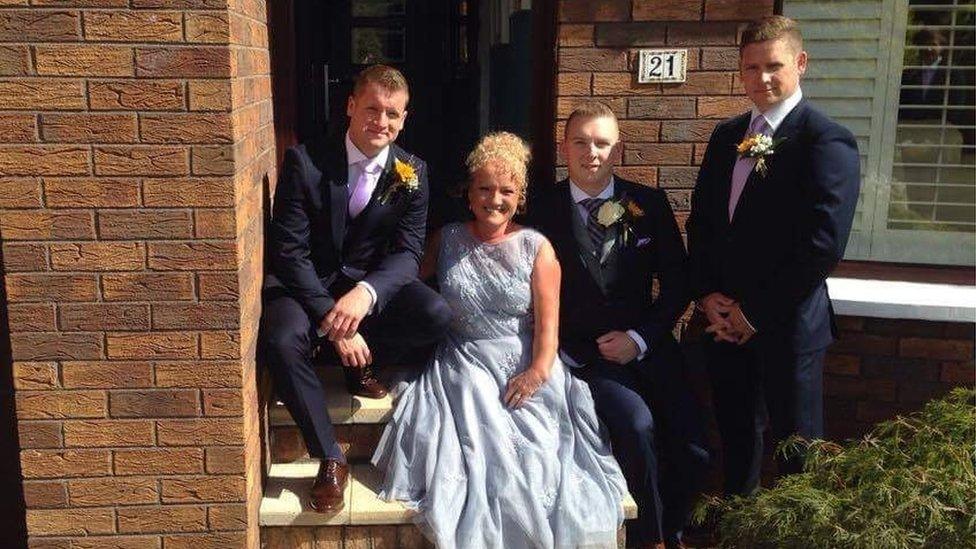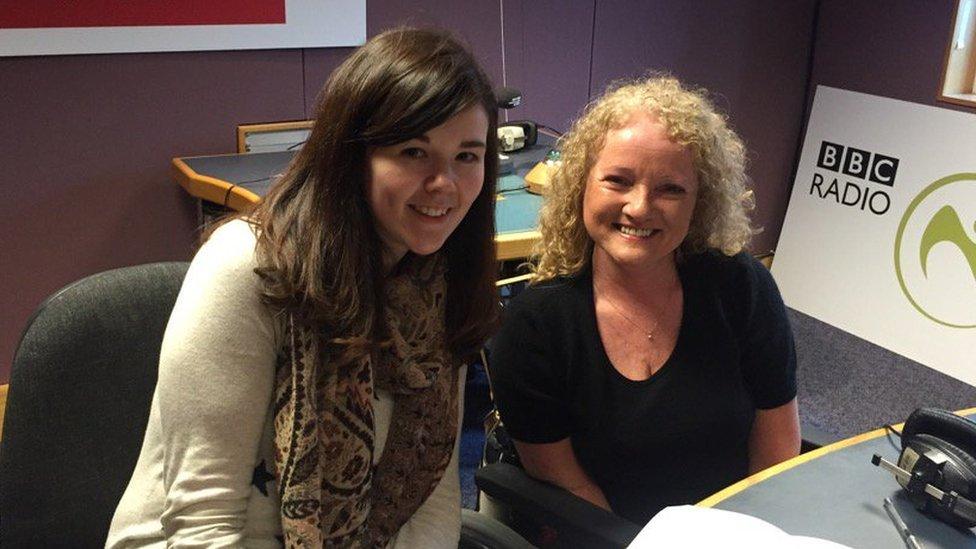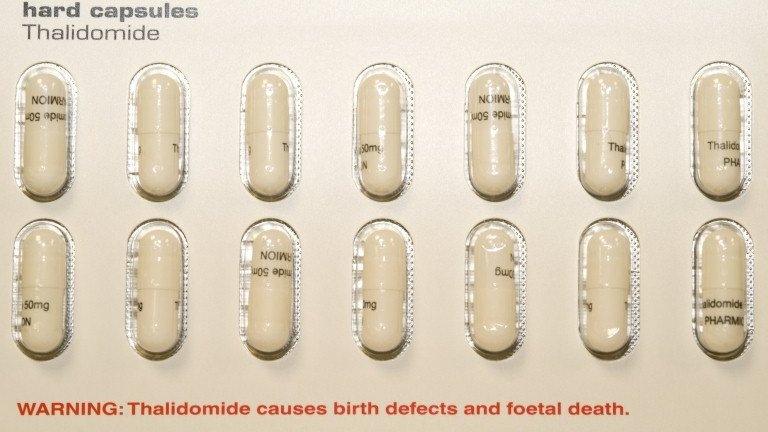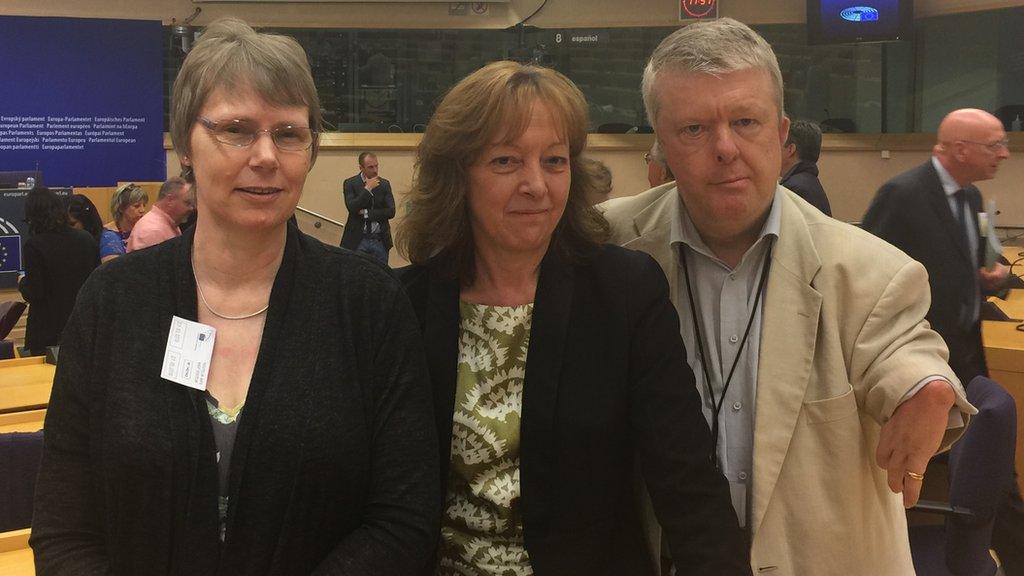Thalidomide: Arlene Foster agrees to support German compensation claim
- Published

Kim Fenton, pictured with her sons, says her health needs have become more complex in her 50s
Northern Ireland's first minister is to write to the German chancellor to seek support for a new compensation package for victims of the Thalidomide scandal.
Arlene Foster added her voice to the campaign after meeting a group of people affected by the drug at Stormont on Monday.
The drug was developed in Germany as a sedative, but it was also used to ease morning sickness in pregnant women.
It was linked to thousands of birth defects and was withdrawn in 1961.
Body weakened
The Stormont delegation included Kim Fenton, a former mayor of Castlereagh, who was born with shorter arms and legs because of Thalidomide.
She told BBC News NI that she believes survivors of the drug scandal are close to a breakthrough in securing compensation from Germany.
Ms Fenton, who is in her 50s, said that life is more of a struggle now, as her body has been so weakened by the strain of using her arms to walk.
"As a child, I didn't feel there were huge challenges. Before my mid-30s, the only time I kind of struggled was in pregnancy," she said.
"But since then, things have changed quite drastically. Because I've been using my arms as legs, the wear and tear over the decades has been severe.
"All the bones in my shoulder have disintegrated. Wearing my artificial legs has dislocated my hip and they can't operate because my bone structure is so complex."

Kim Fenton was born with shorter arms and legs because of Thalidomide
On Monday, Kim and other people affected by Thalidomide asked Mrs Foster to add her voice to those appealing to the German government to recognise its responsibilities towards victims.
In 2012, German-based pharmaceutical company Gruenenthal issued its first apology over the drug in 50 years.
However, it said Thalidomide's possible side-effects "could not be detected" before it was marketed.
In March, a debate in the European Parliament centred on claims that the German government prematurely ended court action in the 1970s which would have helped those affected in the UK.
'All eyes will be on Germany'
Kim and other campaigners want the German government to explain whether it protected Grunenthal directors and staff from prosecution and to properly compensate survivors.
An EU resolution that is expected to be passed in January next year could force the country's government to recognise its responsibilities towards victims.
"All eyes will be on Germany when this resolution is passed," Ms Fenton said.
"They're already embarrassed by this and it will be difficult for them not to respect the authority of the European Parliament.
"But we need our own politicians to take a stand and support our campaign."
Complex medical needs
Kim's increasingly complex medical needs are a strain on her financially - as well as regular physiotherapy, she has to travel to London to see specialists.
"Health insurance doesn't cover existing illnesses, so it would be pointless. This compensation would give me back my independence, which I have lost so much of since my health really began to deteriorate," she said.
"I came to terms with how I am a long time ago. There is nothing I can do to change it, but I want to continue to make the most of what I am and do everything I'm capable of, and to do that, I need support.
"It wouldn't be just a monetary victory though - it would feel like a moral victory if the German government did the right thing."
- Published17 January 2016

- Published5 June 2014

- Published31 May 2015
